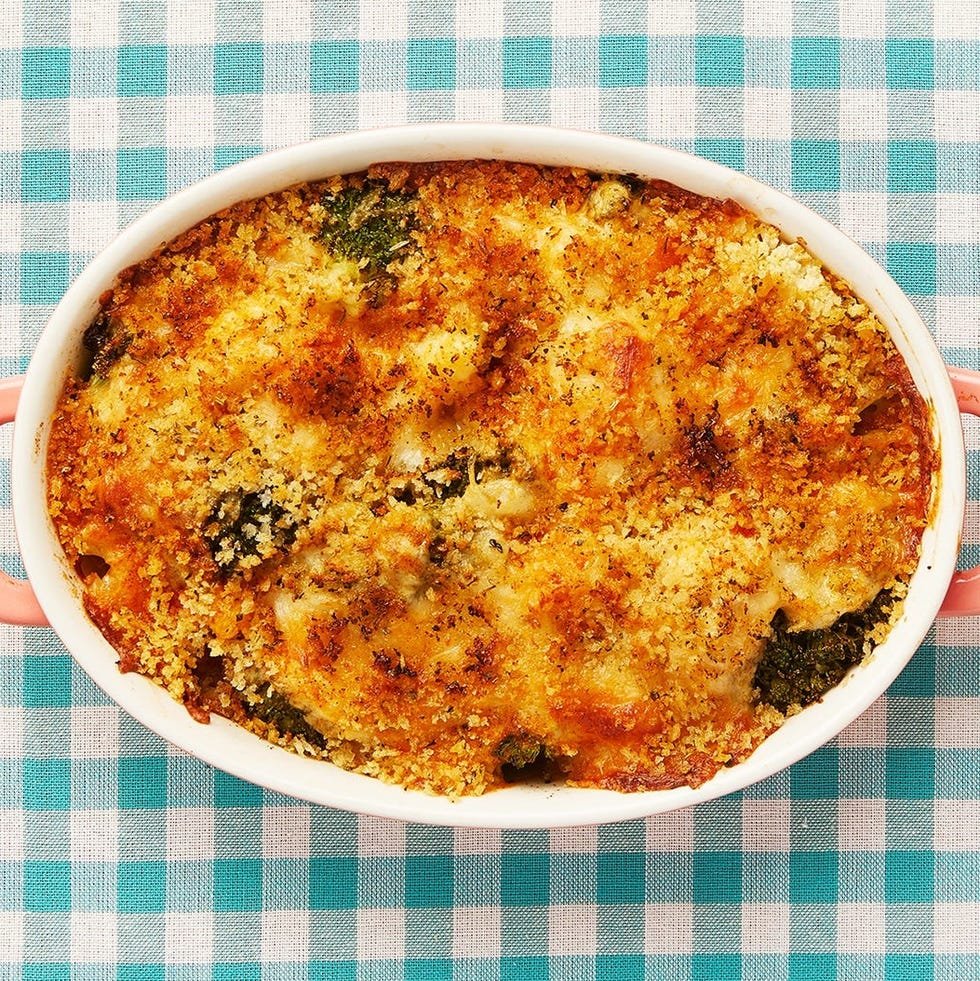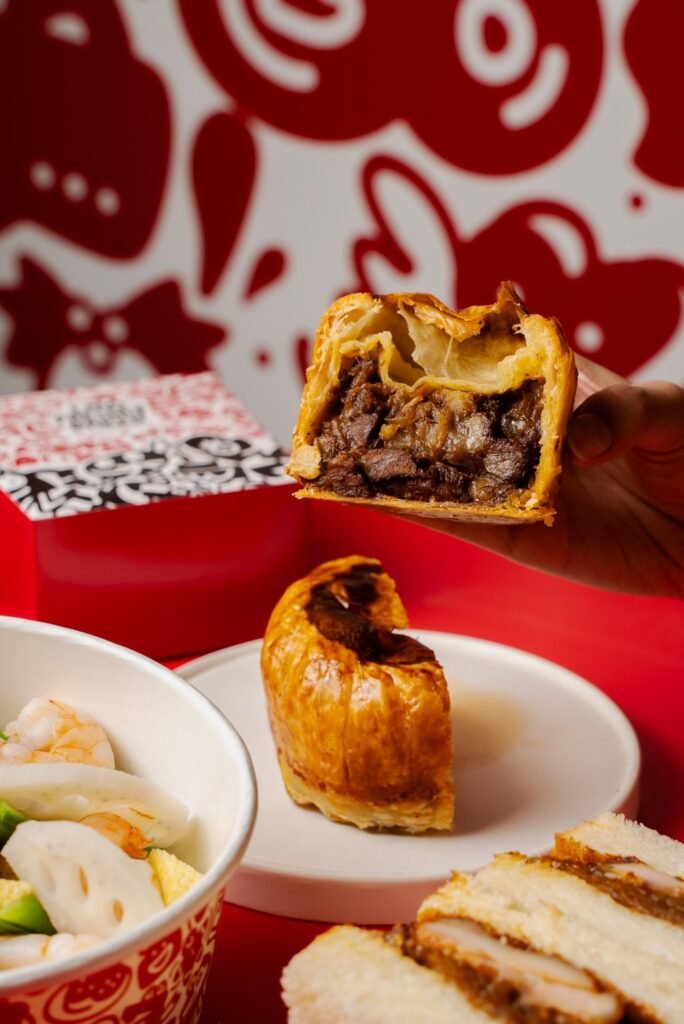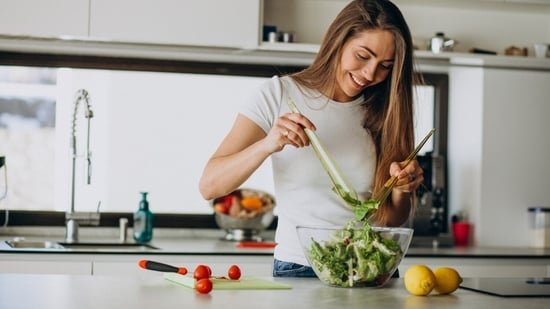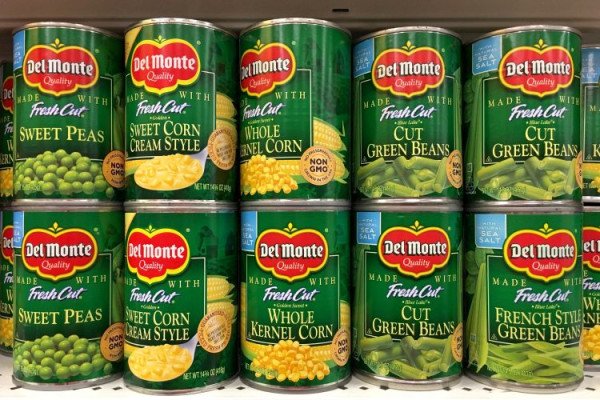
Central City Co-Op offers healthier alternatives for Houstonians, all while supporting local farmers.
The city of Houston is inundated by big name grocery stores—we have our beloved Texan brand, H-E-B, along with Kroger, Whole Foods, and Trader Joe’s—but in the mix of it all, there are still people determined to support smaller local business like Central City Co-Op.
“For us, it’s all about sustainability,” says Jessica Wilt, executive director of Central City Co-Op, “The mission statement is to provide. The focus is on local food and connecting people with food.”
It all started back in 1998, with a group of people who decided they wanted to split a box of parsley. At the time, organic items weren’t really a thing in bigger grocery stores, but some Houstonians were on the hunt for affordable organic produce. They discovered someone willing to help them out with their parsley quest: The group ordered a case to split among themselves and boom, Central City Co-Op was brought to life on the back porch of a spot on Taft Street.
Wilt says after a couple of seasons, the farmers were able to grow enough food to blossom the idea into a farm share at Ecclesia Church. The farmers would bring in what they’d grown and split it equally between the baskets that people ordered. Whatever was leftover would then be available for pickup for whomever was interested. Wilt says it always came with a recipe, too, to help spread awareness about the different ways the items could be used.
Its popularity kept on growing, and in 2009 the co-op moved to what is now Kindred Montrose. Over time, things got rocky for the organization; it even was at risk of shutting down in 2016. But Wilt and her husband knew they couldn’t let that happen. To help save the organization, they decided to take on financial stewardship. Together, they absorbed the co-op and paid its debt. Right now, it isn’t technically a traditional co-op, but the hope is to one day have the community own it again.
“We just see ourselves as the placeholders for Houston until Houston is ready to take it over,” she says.
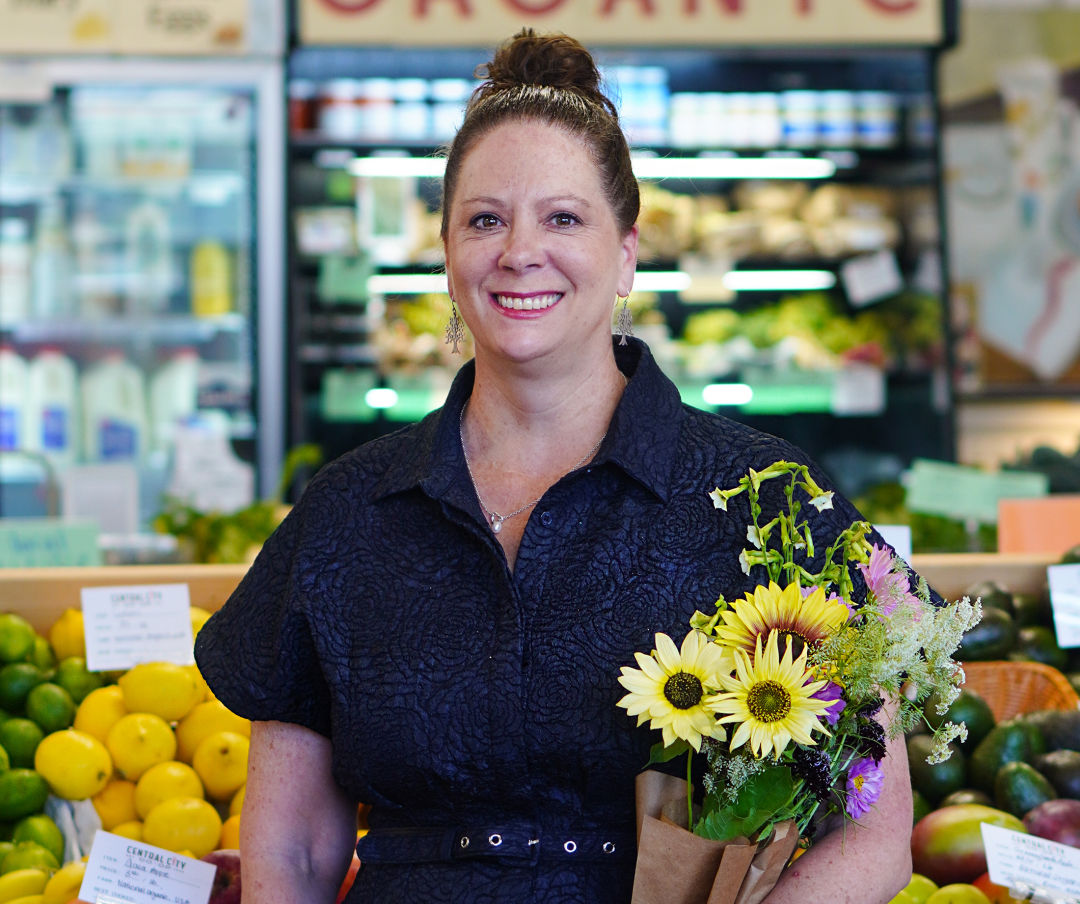
Central City Co-Op’s executive director Jessica Wilt played a pivotal role in keeping the co-op alive.
Ironically, things took a turn for the better in 2020. Wilt says COVID-19 seemed to be a catalyst for people, and noticed that many Houstonians were beginning to prioritize the types of food and ingredients going into their bodies.
This uptick allowed for the co-op to move to a temporary home in the Heights and up their operation from one day a week to six. But Central City Co-Op soon outgrew that space. In 2021, it moved into its current home on Harvard Street.
Now, Central City Co-Op is an outlet for local farmers and is the perfect spot for Houstonians wanting to shift to healthier eating habits. And Wilt jokes that the co-op is bringing back what she calls “grandma skills”—which is just a special way of saying they try to teach their customers how to make the most out of their groceries.
“[People] haven’t gotten that intergenerational knowledge passed down, so we’re helping them reawaken that,” she says. “It’ll save you money to be eating locally and in abundance, instead of having to make multiple trips to the store and not knowing where your food is taken from.”
One example Wilt uses is a carrot. Most people will think of only using the carrot as a vegetable to help supplement their meal and not consider the actual greens that come along with buying a full organic carrot. But, in fact, the greens can be used in a separate recipe for pesto or soup—all you have to do is either sauté it or chop it up and leave it in your freezer for a later date.
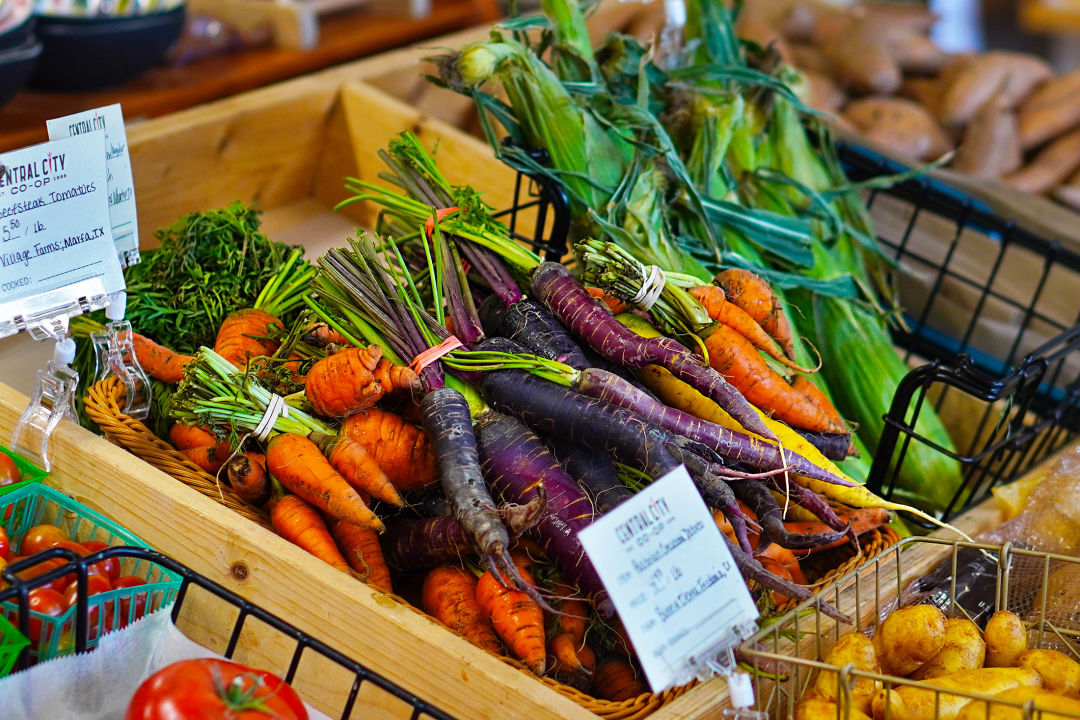
The co-op is bringing back what Wilt calls “grandma skills,” and helps educate its customers on how to make the most out of their groceries.
Since it’s reliant on local farmers, what Central City Co-op has available changes based on the seasons. Wilt says it’s like a new culinary adventure each week, because you don’t really know what you’ll be getting. No matter what, though, you can always find pantry staples, some sort of produce, dairy, meats, wine and beer, and bakery items like pizza dough and bread.
Of course, Wilt doesn’t trust just anyone to supply the co-op with products. There are a number of requirements to be a contributing farmer to Central City Co-Op. Wilt says she’ll go to the farm to see how they’re farming, which lets her know if they can trust the source. A few things she looks for include what a farmer puts on their soil, the upkeep of said soil, and the rotation of their crops.
When Wilt thinks of a farmer she can count on to continue to meet and exceed her expectations, Scott Howard comes to mind. In a city like Houston, it’s hard to believe that people have even found a way to put soil to good use within the inner loop—also known as our concrete jungle—but Howard, who owns Montrose Urban Food Farm, has figured out how to successfully do just that. Depending on the season, you’ll find him growing tomatoes, peppers, eggplants, cantaloupe, watermelons, cucumbers, kale, and collard greens.
Howard has been gardening for several decades on a repurposed plot of land in Montrose. Twenty years ago, he decided to take an extra step and turn it into a community garden, which was once affiliated with Houston-based organization Urban Harvest.
About a decade ago, Howard doubled the land for farming and officially went commercial, but he exclusively sells to Central City Co-Op. Howard says that he’s become a bit of a local celebrity among its customers, but he only knows this because Wilt claims that they ask her to point them straight to his produce.
“I’m happy and pleased with the reputation I have for some really good vegetables,” Howard says.

You can find a variety of items at Central City Co-Op.
By supporting the co-op, Wilt notes that you’re also supporting so much more. For some of these farmers, the purchase of a product helps them pay for daycare, mortgages, car payments, and their kid’s college tuition. At the end of it all, you’re helping the local community thrive.
“We forget that we live in a community, it’s so easy in the modern world to feel like we’re off on our own, but we really are dependent on each other,” Wilt says.
Individual membership for the co-op is $60 a year, and includes several perks, such as discounted produce, beer, and wine; $5 off farm shares; access to raw milk pickup; and free coffee with every visit to the store. Though Wilt encourages anyone from the Houston area to stop by, too, and treat it like any other grocery store.
Down the line, Wilt’s goal is to obtain a big enough grant that would allow for the build-out of a communal kitchen. She’d love to continue to build on the sentiment of community and bring people together to further educate them on how to use all the available ingredients to their fullest potential.
“That’s really the dream,” she says. “Bringing people [together], and continuing that educational process, making it fun.”

